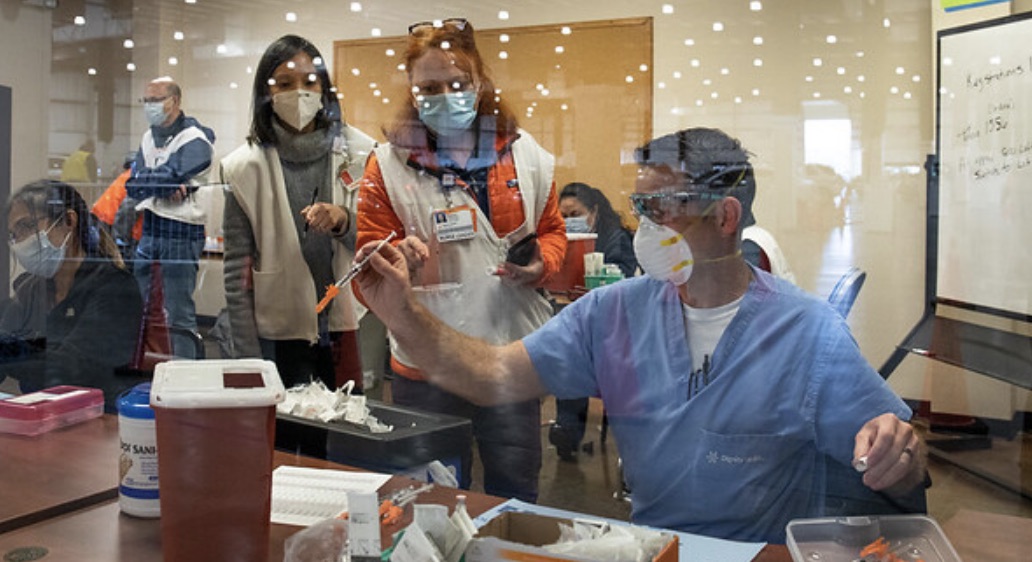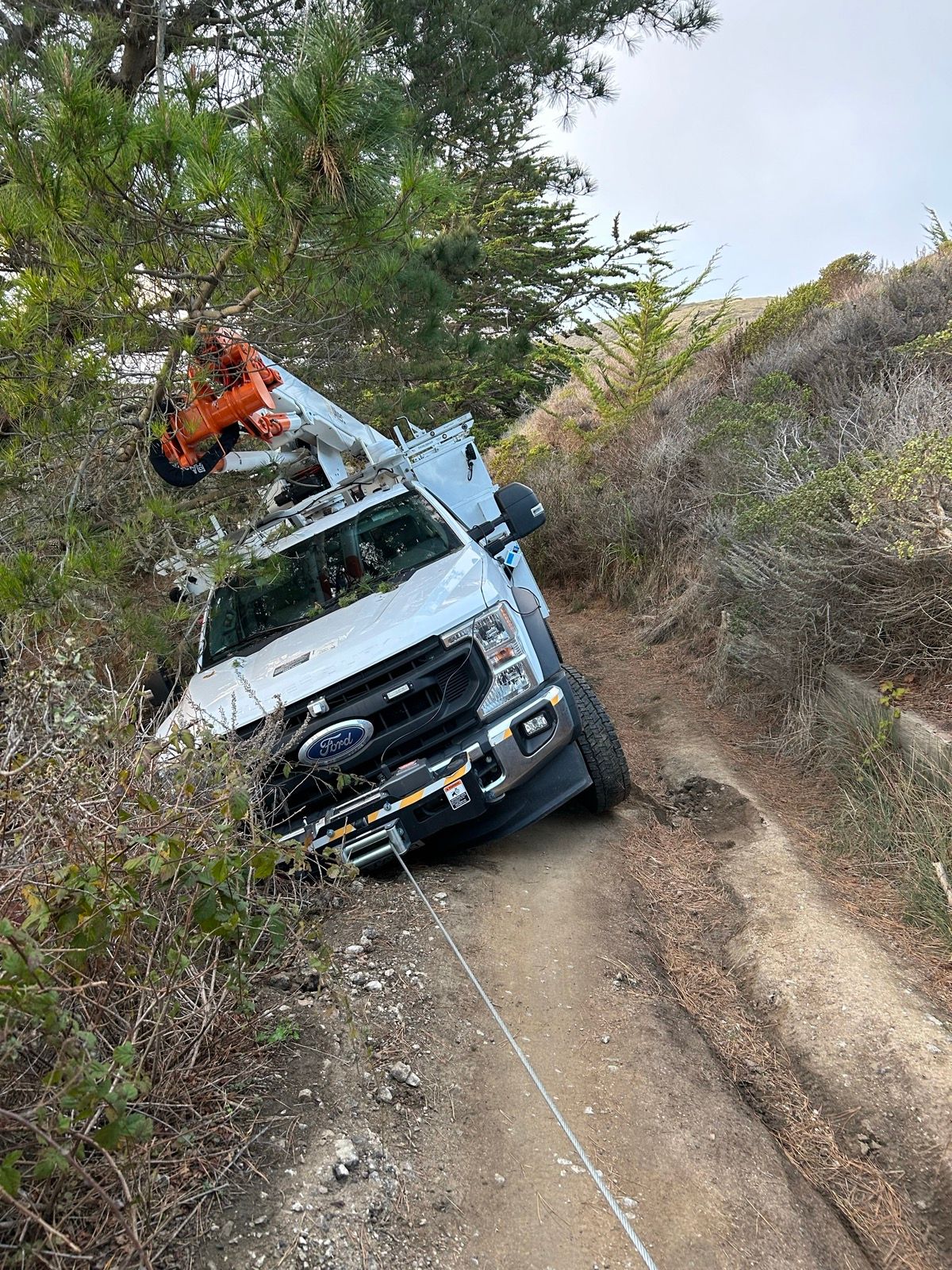|
Getting your Trinity Audio player ready...
|
PRESS RELEASE. County of San Mateo Expands COVID-19 Testing Options

Expanded hours, new site & home-test kits add to existing capacity
Jan. 5, 2021
Redwood City — In response to the surge in the Omicron variant, the County of San Mateo is expanding opportunities for COVID-19 testing.
A new testing site, longer hours at certain existing sites and the distribution of home test kits to residents most at-risk are among the actions. These steps will roll out over the coming weeks as local health leaders seek to ensure the County maintains one of the highest per capita test rates in California.
“Our community’s safety is priority number one, and we are using available resources to help that many more residents know whether they are positive for COVID-19. We are not the only testing option for residents with private health providers or access to privately purchased tests, but we are proud to be an important part of helping stem the spread and prevent severe health impacts,” said County Manager Mike Callagy.
The County currently supports 10 sites that offer PCR laboratory tests with results available within 72 hours depending upon demand. Current capacity is 8,500 tests per week and expanded hours at existing sites will add about 10 percent. Additionally, a new testing site at the Event Center can provide up to 2,000 tests per day. However, County testing only accounts for approximately 15 percent of all testing countywide and does not include data from at-home results.
“With a nationwide shortage of COVID tests now, particularly at pharmacies, this shows an incredible effort to do all we can as a County to meet the demand for testing and keep our residents safe from the Omicron variant,” Sup. David Canepa said. “Increasing capacity at the Event Center and other County testing sites will be a welcome relief for those who want to keep their families safe during this surge. This effort must and will continue until COVID and all of its variants are behind us.”
While County leaders are eager to share with the community the steps being taken, patience is appreciated as staffing shortages and shipping delays may impact operations.
What’s New
► Starting Friday, Jan. 7, 2022: A walk-in testing site operated by private vendor Virus Geeks will open in the San Mateo County Event Center parking lot (enter at 1346 Saratoga Drive, San Mateo) with the ability to provide 2,000 PCR tests daily. PCR tests typically return results within 72 hours. Appointments required through the Virus Geeks website. Those without an appointment will be turned away. NOTE: The Event Center vaccine clinic entrance will move to 2495 S. Delaware St., San Mateo.
► Starting Monday, Jan. 10, 2022: The County has contracted with Bay PLS to offer up to 500 rapid antigen tests daily at its existing San Bruno location. Appointments are required.
► The County is purchasing 50,000 home test kits for distribution through partner agencies to its most impacted and/or at-risk residents and first-responders. Each kit contains two rapid tests.
What’s Expanding
► Availability at the LHI/OptumServe site at the Ted Adcock Community Center in Half Moon Bay has increased from one to three days per week (adding Monday and Friday) and the number of Wednesday appointments will grow from 132 to 258 for the rest of January. The new appointments should be available online next week. These are PCR tests.
- Wednesdays from 8:00 am to 8:00 pm, closed for lunch from 11:00 am to 12:00 pm and 4:00 pm to 5:00 pm. Located at the Ted Adcock Community Center parking lot – 535 Kelly Avenue, Half Moon Bay, CA 94019. Those without appointments not accepted after 5:00 PM
- Mondays and Fridays from 9:00 am to 5:00 pm, closed for lunch from 1:00 pm to 2:00 pm. Located Inside the Ted Adcock Community Center – 535 Kelly Avenue, Half Moon Bay, CA 94019
CLICK to go to the City of HMB Covid Testing Page
► The LHI/OptumServe site at the College of San Mateo, which runs five days a week, will increase from eight to 12 hours per day. The start date is to be determined, based on adequate staffing.
When Should I Get Tested?
The Centers for Disease Control and Prevention (CDC) recommend 1-3 days before a family gathering, or prior to any travel, even if you have no symptoms. Rapid antigen testing should be done 24 hours prior to a gathering or travel. PCR testing should be done within 72 hours – with results available prior to a gathering or travel.
County-supported test sites and schedules are at www.smcgov.org/testing. Residents should also check with health care providers and pharmacies for availability of both PCR and at-home rapid tests.
Residents should not visit local emergency rooms for non-scheduled COVID-19 testing.
What Else Should I Do?
► Get vaccinated, including a booster shot if eligible. Adult and pediatric clinic locations & times here
► Wear a mask with good fit and filtration in ALL indoor public settings (including public transportation). N95 and KN95 or surgical masks do the best job filtering out viruses.
► Anyone feeling sick, even with mild symptoms (sore throat, cough, sniffles), should stay home, isolate from others, and get tested. Anyone confirmed positive for COVID should quarantine. Seek medical care if you experience respiratory difficulties.
For answers to other common questions about COVID-19 testing, go to https://cmo.smcgov.org/press-release/covid-19-what-you-need-know-today
COVID-19: What You Need to Know Today

We know you want to do the right thing.
Here are common questions and the answers as of today:
Jan. 5, 2022
Omicron is the name given to a variant of SARS-CoV-2, the virus that causes COVID-19.
The emergence of the Omicron variant in late 2021 has stressed the local, state and national health care systems.
This is a confusing time. We are providing information below to the best of our ability that is current as of noon, Wednesday, Jan. 5, 2022.
What are the symptoms of the Omicron variant?
The symptoms of infection by the original coronavirus, the Delta variant and Omicron are similar: fever or chills, cough, shortness of breath, sore throat, fatigue, muscle pain. Medical professionals and scientists are working to discern differences between the variants.
There remain many unknowns. “While there is still a lot we don’t know about Omicron, vaccines and boosters are effective at preventing severe disease and limiting transmission of the virus,” said San Mateo County Health Officer Dr. Scott Morrow.
“The best way to track and treat COVID-19 cases – whether the Delta or Omicron variants – is through testing. Testing is absolutely essential for all of us.”
To help prevent the spread, health officials continue to urge vaccination including boosters and require the wearing of masks in public indoor settings, regardless of vaccination status.
I have symptoms, now what do I do?
The first step is to stay home from work or school.
The next step is to get tested.
You should immediately get tested for COVID-19 if you are feeling any symptoms – regardless of your vaccination status. COVID-19 symptoms can feel like a common cold (including just “the sniffles”), seasonal allergies or flu.
Tests can tell you if you are currently infected with COVID-19.
I came into close contact with someone who now has COVID-19. What do I do?
Get tested, even if you are fully vaccinated.
The California Department of Public Health recommends that anyone who is fully vaccinated and comes into contact with someone who has, or is suspected of having, COVID-19 should get tested on day 5 after exposure.
If you are vaccinated, you do not need to quarantine (stay home and away from other people for at least five days), but you should isolate if you develop symptoms or receive a positive test result.
Persons who are not unvaccinated or are vaccinated but have not received a booster should stay home for at least 5 days, after their last contact with a person who has COVID-19, and test on day 5.
You should quarantine if you are in one of the following groups:
► You are 18 or older and completed the primary series of recommended vaccine, but have not received a recommended booster shot when eligible
► You received the single-dose Johnson & Johnson vaccine (completing the primary series) over 2 months ago and have not received a recommended booster shot
► You are not vaccinated or have not completed a primary vaccine series
What are the two different tests? Does it matter which test I take?
Two types of tests are commonly available:
► Rapid antigen tests
► PCR tests
Antigen test: What is it?
An antigen test directly detects fragments of proteins from the COVID-19 virus. Antigen tests have been approved by the FDA to be used to test people with symptoms.
Why use Antigen tests?
► Easy to perform almost anywhere with a non-invasive nose swab
► Provide results quickly
► Good at confirming suspected COVID infections in people who are already sick
Concerns with antigen tests
► Effective only for people currently experiencing COVID-19 symptoms
► More likely to have a “false negative” result: a negative antigen test result may need a follow-up PCR test in people who have COVID-19 symptoms
When should antigen tests be used?
You should use an antigen test when:
► You need to determine quickly if someone who appears sick has COVID-19
► You are in an area where access to PCR testing is limited
► If there is limited PCR testing capacity and you are in a high-risk setting where regular, frequent testing is recommended (nursing homes, other congregate care facilities)
PCR test: What is it?
PCR stands for polymerase chain reaction. The PCR test amplifies and then detects the presence of COVID-19 virus’ genetic material.
Why use PCR tests?
PCR is the preferred test for diagnosing COVID infections for people who are sick and in people who aren’t experiencing any COVID symptoms.
Concerns about PCR tests
► Conventional PCR tests must be processed in a lab, which can mean waiting a up to 72 hours or more between having the test done and getting a result
PCR testing is available at County-operated sites [smcgov.org/testing], pharmacies such as CVS [cvs.com], Walgreens [walgreens.com] and others and testing providers such as Curative [curative.com] and Virus Geeks [virusgeeks.com].
Learn more about testing and contact tracing at: https://www.smchealth.org/testing-contact-tracing
Do not go to an emergency department or urgent care for testing
Hospital emergency departments and other urgent care facilities are not testing centers. Do not seek urgent care for testing.
Are at-home test results reported to local public health officials?
No.
At-home antigen test results are not typically reported to public health agencies, nor are they usually included in official case tallies. This means testing and positive-case statistics are significantly under-reported.
I got tested (because of symptoms or close contact) but won’t get results back for another 24 to 72 hours. What should I do while I wait?
You should self-isolate, staying home from work or school, while you wait for your results.
What’s the latest on face coverings/masks?
The California Department of Public Health and the County of San Mateo are requiring masks to be worn in all indoor public settings, irrespective of vaccine status.
For additional information on types of masks, the most effective masks, and ensuring a well-fitted mask, the state refers people to
HMB COVID-19 TESTING / PRUEBAS DE COVID-19





